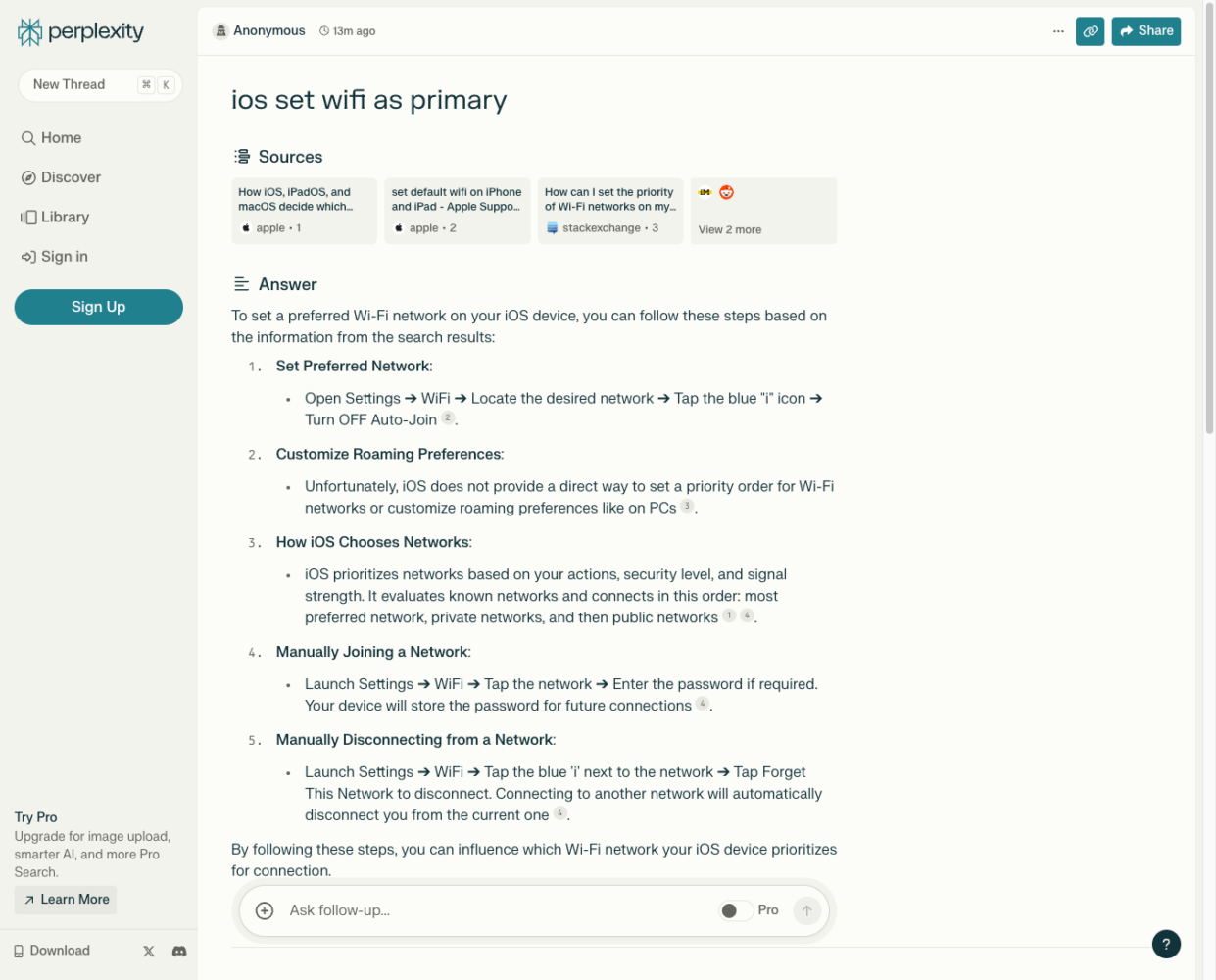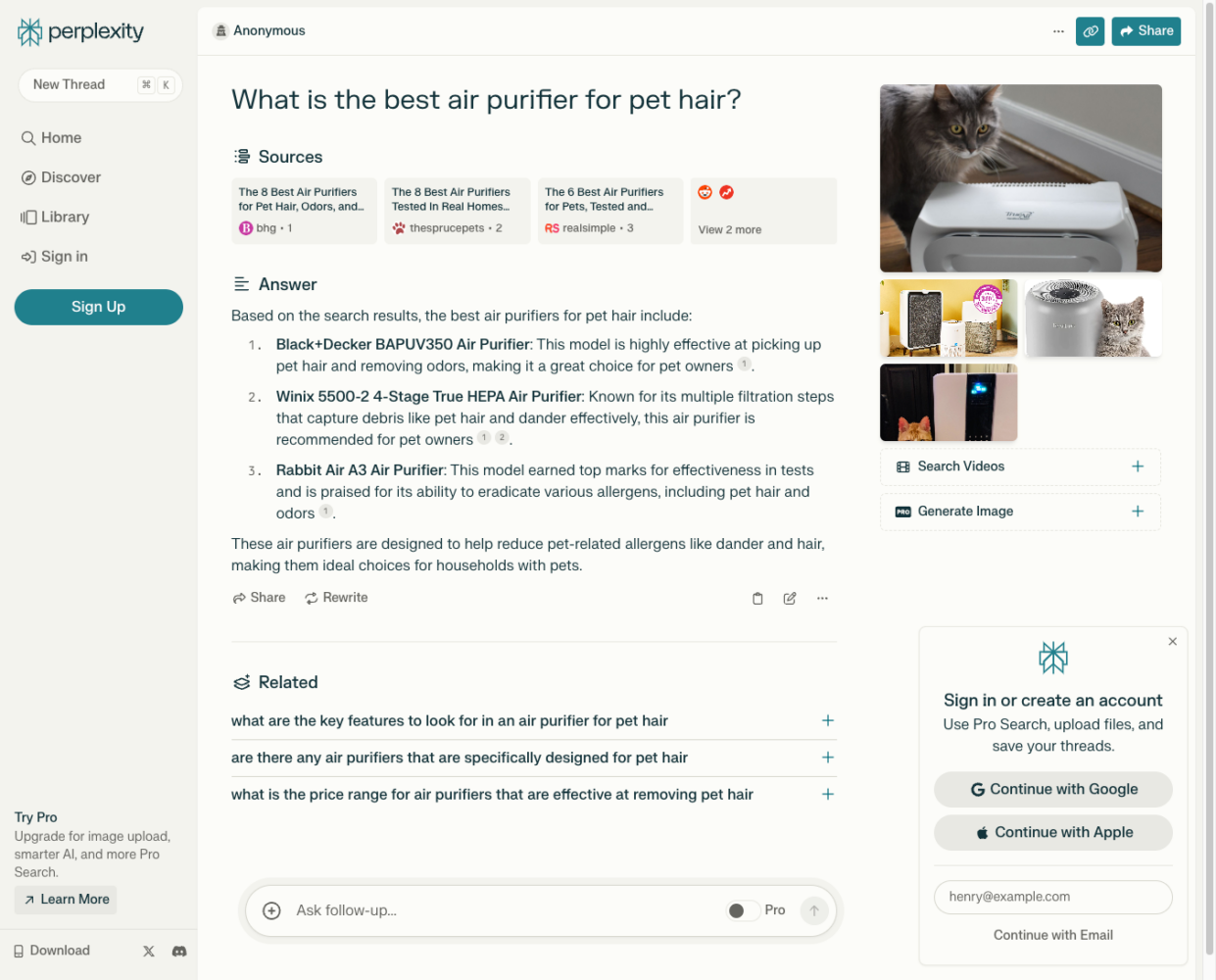Tiktoker Jason Pargin was just asking Google what seemed like a simple question — “How to set a wifi network as primary on iOS”. But his search led him down a switchback laden path of 12 year old articles, instructions for Windows, and a game of word search played in a sea of in-article ads.
What Jason Pargin didn’t know at the time is that AI search tools that filter through the crud of search results exist. Let’s give his query a try on Perplexity.

Way better. Just 5 easy steps. Except, something’s not quite right here. Some of these steps seem unrelated. The most appropriate step looks to be step 1, but it’s a little light on the details. What network do I turn off auto-join for? Step 2 offers some explanation, but no step to follow. Step 3 just teases an option to set a “most preferred network”. Step 4 and 5 shows me how to connect and disconnect from networks manually, which isn’t what I asked.
With a little technical know-how, you might be able to piece together that iOS doesn’t make an option available to set WiFi network priority (2) and if you want to choose a preferred network you will have to set Auto-Join to OFF (1) for all other networks that aren’t your preferred network (connecting the dots myself).
That’s it. A one sentence answer. But AI search isn’t wired to find the answer, it’s wired to pattern match against a corpus. And despite being reality augmented, this particular reality is filled with the same garbage content plaguing google search results.
The same conclusion can be observed when querying Perplexity for product reviews.

The top product returned in a search for “the best air purifier for pet hair” is the Black+Decker BAPUV350 Air Purifier. This product has (at the time of this writing) 6 reviews on Amazon, none of which mention its effectiveness with pet hair. All 5 sources linked are the same top 5 garbage results as Google.

AI search won’t 10x Google by summarizing the same results. In the race to AI everything, “just add LLM” won’t cut it. Garbage in, garbage out. There is far more innovation to be seen in AI that crawls for and extracts verifiable facts. AI that can generate knowledge graphs and serve up grounded sources for search results we can trust.
Traditional search engines were already buckling under the weight of SEO farms. With AI created content an inevitability, we’ve arrived at a critical juncture. How do we design a search engine for a web of near limitless machine generated garbage?
Until then, you can simply let AI google that for you.
You must be logged in to post a comment.